‘DeepChina’ Substack exposed: covert United Front ‘opinion and cognitive warfare’ project targets international China scholars (Collective Study Issue 04)
A review by Collective Study of Party propaganda documents, journal articles, and other official sources reveals that the DeepChina Substack account — which presents itself as “an elite academic initiative” — is in fact controlled and directed by the United Front Work Department, and was created specifically to spread propaganda and conduct “opinion and cognitive warfare” in support of the CCP’s ethnic affairs work.
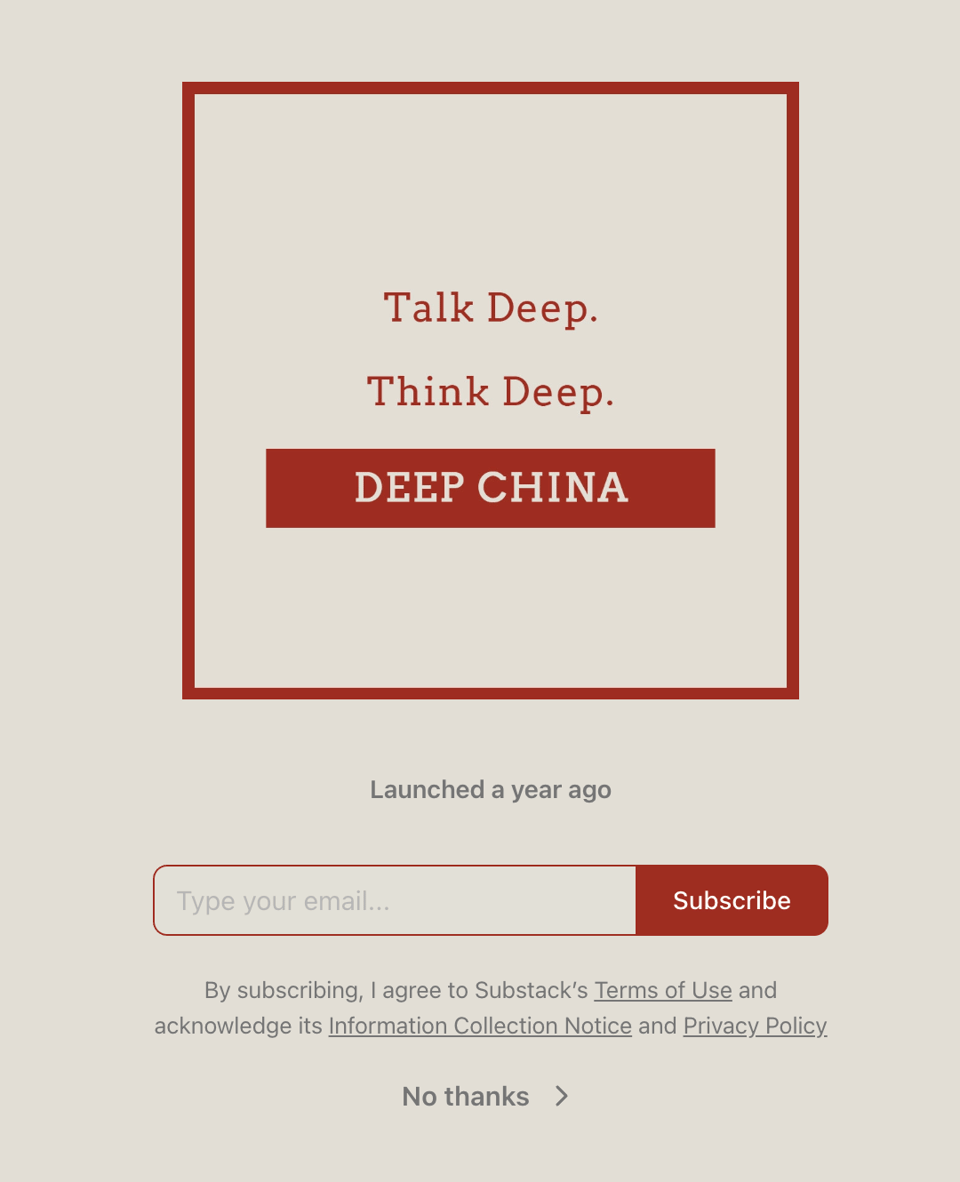
Launched in 2022, DeepChina and its domestic Chinese edition Dao Zhonghua (道中華) are ‘propaganda brands’ of state media under China’s National Ethnic Affairs Commission (國家民族事務委員會). The commission is directly controlled by the United Front Work Department (UFWD).

“Lean on the ‘Dao Zhonghua’ propaganda brand and use innovative methods to tell stories about the Community of the Chinese Nation well,” the most senior United Front official responsible for ethnic affairs work Pan Yue (潘岳) wrote in an article published in Qiushi Journal (求是, aka Seeking Truth), the leading CCP publication on Party theory and ideology. Pan holds the rank of deputy minister in the UFWD and is Party secretary and head of the National Ethnic Affairs Commission.
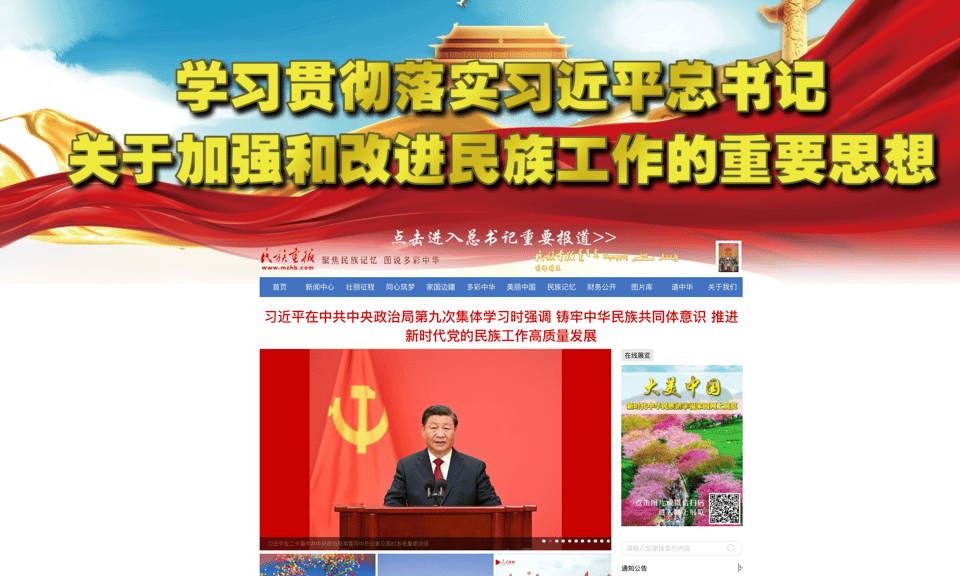
Under Xi Jinping, a key part of ethnic affairs work in the international sphere is countering information and ideas which go against the assimilationist, ahistorical idea of a single great ‘Chinese’ (Zhonghua) culture which includes non-Han groups such as Tibetan and Uyghur peoples.
A recent state media document for internal use within the propaganda apparatus elaborated DeepChina/Dao Zhonghua’s mission and laid bare the Party’s anti-West hostility and aggressive thinking behind its propaganda tactics.
“In order to respond to the grave international opinion situation over [China’s] ethnic groups, especially the US-led West’s smears and rumour-mongering in recent years on Tibet and Xinjiang human rights and other issues, make full use of the spirit of struggle…organise authoritative scholars to engage in academic explanations, clearly explain Zhonghua (Chinese) civilization’s characteristics, the history of the formation and development of Zhonghua ethnic groups, the correct path of resolving ethnic issues with Chinese characteristics, exchanges and mutual learning between Chinese and Western civilizations, tell the story of the Community of the Chinese nation (lit. Community of Zhonghua ethnic groups) well.
At the same time, clear up the international community’s misunderstandings and misreadings, refute the mistaken historical perspectives of the international academia, respond to smears and attacks from the US-led West, launch opinion warfare and cognitive warfare over ethnic group [issues] and crack the difficult problem of the international community’s thinking on China.”
The document further claimed that the central government “highly affirms" the results of Dao Zhonghua’s “international public opinion struggle work”.
By publishing in-depth articles by researchers and writers from politics, media, academia and think tanks, DeepChina aims to respond to “sensitive hot topics” that the public “misunderstands” and “open up a new phase of international United Front work on ethnic affairs,” the document explained.
DeepChina is said to “meet the real needs of external propaganda work on ethnic affairs” by “adapting ethnic affairs work to advance the struggle situation on the frontline of the China-US game (博弈)” and “serve the overall external propaganda strategy of the Party and state”.
Besides Xinjiang and Tibet, some other “sensitive topics” for DeepChina include:
“The Austronesian origins of Taiwan theory” put forward by “Taiwan Independence” forces
Clarifying that Goguryeo was historically a “local regime in North East China”
Refuting “erroneous historical perspectives” such as the “Inner Asian view of history”, “New Qing History”, “Zomia theory”.
Ethnic Pictorial (民族畫報), the outlet that formally created DeepChina/Dao Zhonghua, is a national-level state media from the Ethnic Pictorial Publishing House (民族畫報社) founded in 1953 and directly under China’s National Ethnic Affairs Commission.
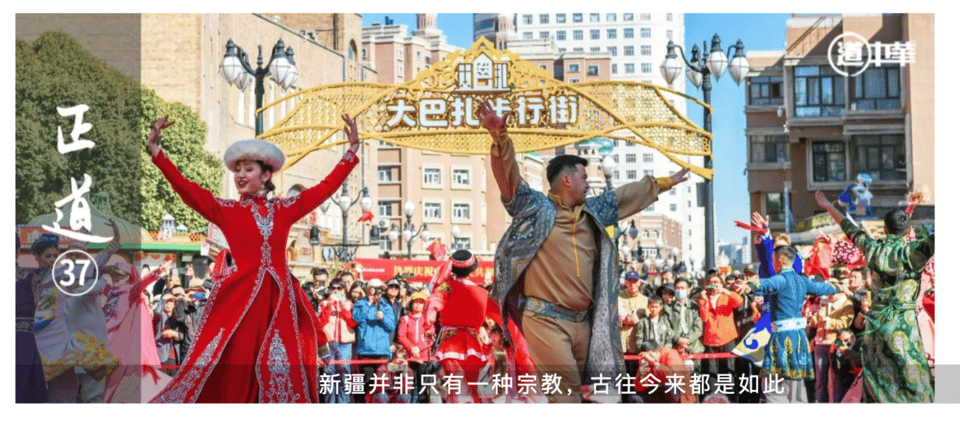
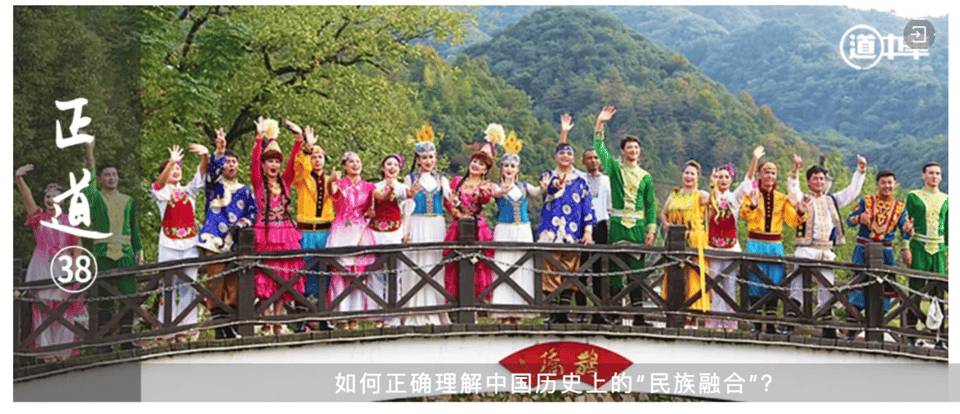
While DeepChina focuses on Substack, Dao Zhonghua is a WeChat-first outlet. Its posts highlight “recommended readings” such as “Historical truth and facts shatter the agricultural-pastoral binary opposition of the ‘Inner Asian historical view’”.
That piece was authored by a vice dean of the College of Humanities and Social Sciences of Inner Mongolia Agricultural University, Wang Liqing (王利清), who is, more importantly, a member of the university’s Research Base for Strengthening the Consciousness of the Community of the Chinese Nation (鑄牢中華民族共同體意識研究基地).
Their argument is typical of how DeepChina/Dao Zhonghua propaganda acts as an aggressive mouthpiece of the National Ethnic Affairs Commission, promoting Xi Jinping’s assimilationist agenda and attacking critics and unfavourable theories.
The article calls for looking at history “objectively” to “clearly see that there has long been a mutually beneficial economic symbiotic relationship between Inner Mongolia and the Central Plains,” before snapping “it is by no means the agricultural and pastoral dichotomy theory with ulterior motives of the ‘Inner Asian historical view’”.
Despite aiming for a scholarly tone, Dao Zhonghua struggles to eschew the shrill tone popularly associated with CCP and communist propaganda more broadly.
In a sweeping defence of the harmonious unity of the Chinese state, for example, the author employs anachronistic CCP discourse to defend Qing actions, musing on how “under the joint efforts of the dynasty's administrative power, Mongolian trade and people of all ethnic groups, a set of land contract writing traditions originating from the Central Plains took root and evolved”.
The Dao Zhonghua article concludes that the Chinese state did not conquer its periphery, rather “a miracle of civilization” emerged, “created by the fertile soil of the Yellow River, the grasslands and the desert.” Drawing on Xi Jinping’s ethnic policy slogan, the author stresses that Mongolian material culture represents “the symbiotic wisdom of Chinese civilization” and “the formation of a Community of the Chinese Nation”.
In a similarly hawkish vein, editors appear to have pasted a political battle cry below one Dao Zhonghua article, declaring “irrefutable!” evidence that Tibet is an “inseparable part of China”:
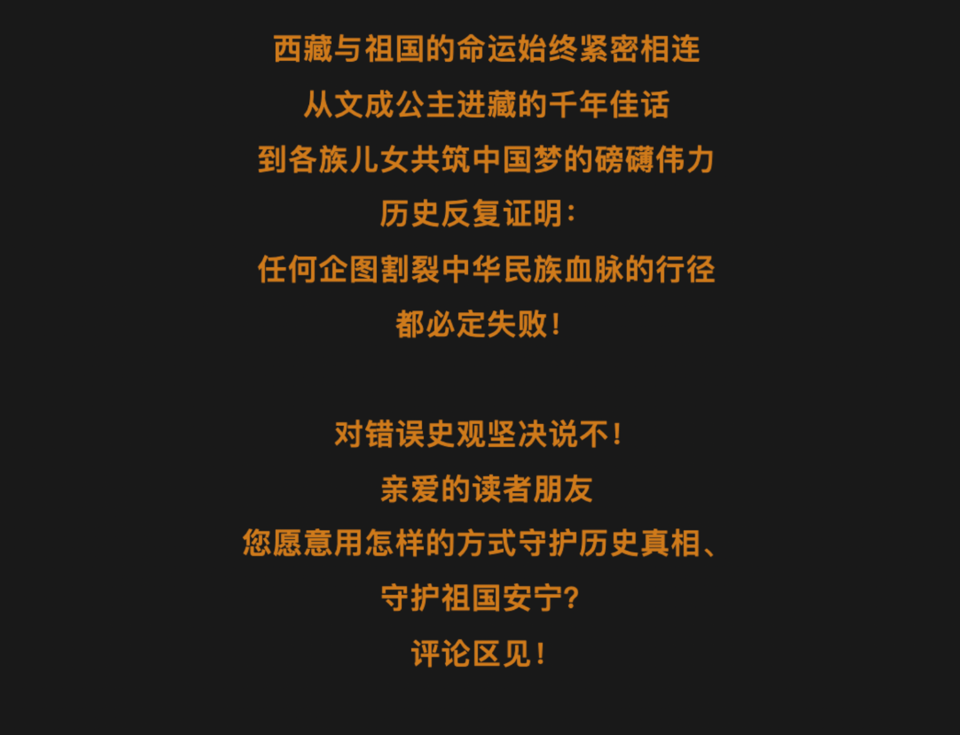
“Any attempt to sever the bloodline of the Chinese nation is bound to fail! Say no to wrong historical facts!” it barks.
Quickly catching their breath for some dovish community engagement, the editors continue: “Dear readers and friends, which ways would you use to protect historical truth and defend peace in the motherland? See you in the comments section!”
DeepChina claims, as state media so often do, to have won plaudits from “eminent overseas scholars”. These include Einar Tangen, Senior Fellow at the Taihe Institute think tank in Beijing.
Much of the praise DeepChina presents however appears to have been solicited directly via email with foreign scholars.
Writing on Bluesky, one historian of China shared that a number of China scholars in North America were “involuntarily added” to DeepChina’s email list.
“There's no way to unsubscribe,” the historian bemoaned, adding that he filtered DeepChina’s emails to his spam folder.